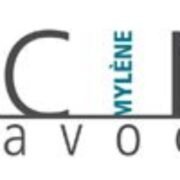Best Adoption Lawyers in Sierre
Share your needs with us, get contacted by law firms.
Free. Takes 2 min.
Free Guide to Hiring a Family Lawyer
List of the best lawyers in Sierre, Switzerland
1. About Adoption Law in Sierre, Switzerland
Adoption in Switzerland is principally a matter of civil law, under federal oversight with cantonal administration. The Swiss Civil Code governs the legal effects, consent requirements, and the process for domestic adoptions. Cantonal authorities in Valais, where Sierre is located, coordinate the pre adoption evaluation and the court proceedings. This mixed framework means you will interact with both cantonal social services and the cantonal court handling family matters.
In practice, most adoption cases in Sierre begin with a home study by cantonal social services, followed by a court petition for final authorization. After the court approves an adoption, the legal parent-child relationship is established and the adoptee’s status is updated in civil records. For intercountry adoptions, federal and international rules apply, including cooperation under international treaties.
Switzerland participates in the Hague Adoption Convention to ensure cross border adoptions are handled with safeguards for the child and legal certainty for adoptive families.
For essential guidance and official details, consult Swiss federal and cantonal resources. See the Swiss government portal and the Hague Conference for international adoption matters. Swiss adoption overview, Hague Convention - intercountry adoption.
2. Why You May Need a Lawyer
Adoption matters in Sierre often involve complex legal questions or cross border issues. A solicitor or attorney can help you navigate requirements, deadlines, and potential disputes. Below are concrete scenarios where legal counsel is typically essential.
- Intercountry adoption cases where Swiss and foreign procedures must align with the Hague Convention and Private International Law rules.
- Step-children adoption where consent from biological parents or guardians is disputed or not clearly given.
- Cases involving termination or transfer of parental rights due to safety, welfare concerns, or neglect allegations.
- Adoptions involving same or mixed family structures where residency, citizenship, or registration changes are required after finalization.
- Domestic adoptions where one parent is not a healthy or present caregiver and the other parent seeks final authorization.
- Post- adoption issues such as name changes, citizenship registration, or access to child binding agreements and records.
Practical tip: Engage a local solicitor early to assess eligibility, gather documents, and map a realistic timeline for steps in Valais and at the cantonal court. Early professional involvement can reduce delays and prevent procedural errors.
3. Local Laws Overview
Key legal frameworks govern adoption in Sierre and across Switzerland. The national Civil Code sets the baseline for domestic adoptions and the legal consequences once an adoption is granted. For cross-border cases, federal private international law provides the rules that coordinate Swiss and foreign procedures. Internationally, the Hague Adoption Convention guides intercountry adoptions involving cooperation between jurisdictions.
Swiss Civil Code (Zivilgesetzbuch, ZGB) - Governs domestic adoptions, consent, and the effects on parental rights and inheritance. For the text and current provisions, see the official Swiss legal portal and the Civil Code as implemented in Swiss law. Swiss Civil Code - ZGB.
Federal Act on Private International Law (IPRG) - Regulates cross-border elements of adoption, including jurisdiction and applicable law in intercountry cases. See the federal private international law guidance for family matters. Federal Act on Private International Law - IPRG.
Hague Convention on Protection of Children and Cooperation in Respect of Intercountry Adoption - International treaty shaping intercountry adoption processes, safeguards, and cooperation between states. Switzerland joined the convention and applies its provisions in appropriate cases. Hague Adoption Convention.
Recent practical updates in cross-border adoption reflect Switzerland's alignment with international standards and cooperation mechanisms for child protection.
For easy access to official guidance in English, consult the Swiss government portal and international law resources. Adopting a child in Switzerland, Hague Convention - intercountry adoption.
4. Frequently Asked Questions
What is adoption under Swiss law?
Adoption is a legal act that creates a new parent-child relationship under the Swiss Civil Code. It typically requires court authorization and parental consent in domestic cases.
How do I start an adoption in Sierre?
Begin with a consultation with a solicitor who handles family law and contact cantonal social services for a home study and procedural requirements before filing in court.
Do I need a lawyer to adopt in Switzerland?
While not always mandatory, having a lawyer increases clarity on consent, procedure, and timelines, especially for intercountry adoptions.
What is a home study and who conducts it?
A licensed social worker or cantonal social services assess family circumstances, safety, and suitability for parenting a child.
How long does a typical domestic adoption take in Valais?
Domestic adoptions generally span several months to a year, depending on consent, background checks, and court scheduling.
How much does adoption cost in Sierre?
Costs include legal fees, social services assessments, and court costs. Total expenses often range from several thousand to tens of thousands of CHF, depending on case complexity.
Do I need to reside in Switzerland to adopt a child here?
Residence requirements vary by case type; many domestic adoptions involve Swiss residents or long-term stay, while international cases must meet cross-border rules.
Can foreigners adopt in Switzerland?
Yes, foreigners may adopt, but intercountry adoptions are governed by the Hague Convention and IPRG, with strict eligibility and procedural steps.
What are the consent requirements for adoption?
Consent from biological parents or guardians is typically required, unless parental rights have been terminated or are otherwise legally in question.
Is intercountry adoption allowed in Switzerland?
Intercountry adoption is allowed under the Hague framework; applications must follow international cooperation rules and Swiss law.
What is the difference between domestic and intercountry adoption?
Domestic adoption occurs within Switzerland with Swiss procedural rules; intercountry adoption involves foreign law, authorities, and international cooperation.
What happens after an adoption is granted?
The adoptee gains full parental rights and the adoptive parent becomes a legal parent; civil records are updated to reflect the new status.
5. Additional Resources
- Swiss Federal Office of Justice - Private International Law and family matters: bj.admin.ch - Private International Law
- Swiss government information on adopting a child: ch.ch - Adopting a Child
- Hague Conference on International Law - Hague Adoption Convention: hcch.net - Intercountry Adoption
6. Next Steps
- Clarify your adoption goal (domestic, step-parent, or intercountry) and identify potential obstacles. Expect to decide within 1-2 weeks after initial consultation.
- Consult a local adoption solicitor to assess eligibility and prepare a documents checklist. Schedule within 1-3 weeks after deciding to proceed.
- Contact cantonal social services in Valais for a home study if domestic adoption or step-child adoption is planned. Complete the study within 4-8 weeks after initial contact.
- Gather required documents (identity, birth certificates, marriage certificates, residency proof, etc.) and translate where needed. Plan 2-4 weeks for collection and translation.
- Prepare and file the petition with the cantonal court and ensure consent is obtained or legally addressed. Expect court filing within 1-2 months after the home study approval.
- Attend court hearings and respond to any additional requests from authorities. Court decisions may take 3-9 months depending on case complexity.
- Receive the final adoption decree and update civil records, then obtain new birth name or citizenship status if applicable. Finalization typically occurs within 1-2 months after the hearing.
Lawzana helps you find the best lawyers and law firms in Sierre through a curated and pre-screened list of qualified legal professionals. Our platform offers rankings and detailed profiles of attorneys and law firms, allowing you to compare based on practice areas, including Adoption, experience, and client feedback.
Each profile includes a description of the firm's areas of practice, client reviews, team members and partners, year of establishment, spoken languages, office locations, contact information, social media presence, and any published articles or resources. Most firms on our platform speak English and are experienced in both local and international legal matters.
Get a quote from top-rated law firms in Sierre, Switzerland — quickly, securely, and without unnecessary hassle.
Disclaimer:
The information provided on this page is for general informational purposes only and does not constitute legal advice. While we strive to ensure the accuracy and relevance of the content, legal information may change over time, and interpretations of the law can vary. You should always consult with a qualified legal professional for advice specific to your situation.
We disclaim all liability for actions taken or not taken based on the content of this page. If you believe any information is incorrect or outdated, please contact us, and we will review and update it where appropriate.









